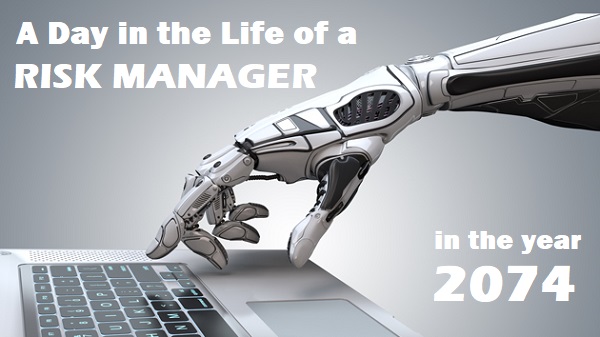In 2074, risk management has transformed through the integration of Artificial General Intelligence (AGI), enhancing decision-making and navigating complex global challenges. This new collaboration balances data-driven insights with human intuition, fostering resilience and ethical considerations while tackling unprecedented risks in an interconnected world. This is the story of a risk manager in the year 2074.
As a risk professional in the year 2074, my world looks nothing like the one I trained for decades ago. The tools we relied on back then—spreadsheets, models, even machine learning—seem like ancient relics compared to the powerful, adaptive systems we work with today. Now, Artificial General Intelligence (AGI) is not just an assistant; it’s a partner. Together, we manage risks that are more complex, interconnected, and unpredictable than I ever imagined.
My day begins with a briefing from my AGI assistant, whom I’ve named “Athena.” She doesn’t just scan news headlines or analyze data trends; she interprets global events, financial fluctuations, geopolitical tensions, and even social shifts in real-time. The sheer speed of her calculations still stuns me. Athena runs through millions of potential scenarios, weighing probabilities and impacts far beyond what human minds could ever process. Yet, somehow, she presents it to me in a way that feels intuitive, almost human.When I started in risk management, I never thought I’d be sharing decision-making with a machine. At first, it was unsettling. Could I trust an AI to make decisions about things that affect human lives, organizations, economies? I remember questioning the ethics of it—after all, Athena didn’t “feel” risk in the way I did. But over time, I realized that it wasn’t about replacing human judgment. Instead, it was about enhancing it. AGI excels at processing information, but it still looks to us for the human factor—empathy, intuition, and ethical boundaries.
Today, the complexity of the risks we face has escalated. From climate disasters to digital infrastructure collapses, the stakes are higher than ever. A single cyberattack could cripple a nation, a minor financial oversight could ripple into a global recession, and geopolitical decisions could ignite conflicts faster than we can anticipate. The speed and inter-connectivity of the modern world mean that risk isn’t just localized—it’s systemic.
Yet, despite these challenges, I feel a sense of control, even empowerment. With AGI at my side, I’m no longer drowning in data or running endless “what if” scenarios. Athena doesn’t just give me probabilities; she provides insight into the cascading effects of one event on the entire system. What happens if a natural disaster in Southeast Asia affects supply chains in North America? Or if a government destabilizes in Europe, triggering market panic across global finance? AGI’s simulations span not just months or years but decades, allowing us to prepare for risks generations in advance.
Of course, AGI isn’t perfect. One of the biggest challenges I face is ensuring that Athena’s risk assessments align with human values. It’s easy for AGI to calculate the most efficient outcome, but efficiency doesn’t always mean ethical. I still need to step in, to ensure the human element is never lost. Risk management, even with AGI, is about balancing the hard data with human principles—prioritizing life, safety, fairness, and sustainability.
I’ve also learned to appreciate the unpredictability of human behavior. AGI can predict market trends, model environmental shifts, or even anticipate political upheavals, but people—individuals—are still wild cards. Fear, greed, compassion, and irrationality can throw off even the most sophisticated models. That’s where my experience comes in. Athena helps me see patterns and probabilities, but ultimately, it’s my human instincts that guide the final decisions. There’s a subtle art in knowing when to trust the data and when to trust your gut.
One of my proudest achievements came last year when we successfully navigated a global financial crisis. While AGI had predicted the initial shock, it was our human-led risk management team that intervened early to mitigate the social fallout. We created a multi-level response plan that involved everything from economic stabilization to humanitarian aid. Athena was instrumental in processing vast amounts of data, but it was our human foresight—understanding the emotional and psychological needs of the population—that truly made the difference.
There are still days when I feel overwhelmed. The pace of change is staggering. Risks evolve faster than ever, and with AGI in the mix, there’s an expectation that we can foresee everything. But the reality is, we can’t. Risk management will always involve uncertainty. The beauty of working with AGI is that it doesn’t eliminate the unknown; it simply gives us better tools to navigate it.
As I look to the future, I’m optimistic. In 2074, risk management is not just about preventing disasters—it’s about fostering resilience, adaptability, and innovation. We are no longer merely reactive; we are proactive, steering our organizations and societies toward better outcomes. With AGI as a collaborator, we can see beyond the immediate horizon and prepare for a world that our predecessors could only dream of.
The challenges are immense, yes. But the possibilities? They’re even greater.
Like this article? Leave a comment

